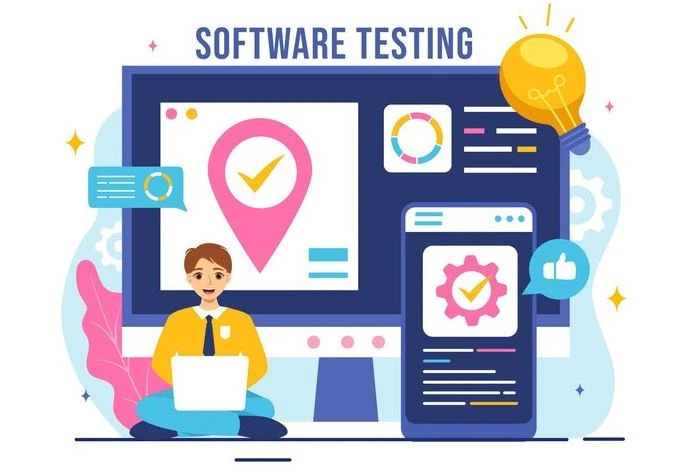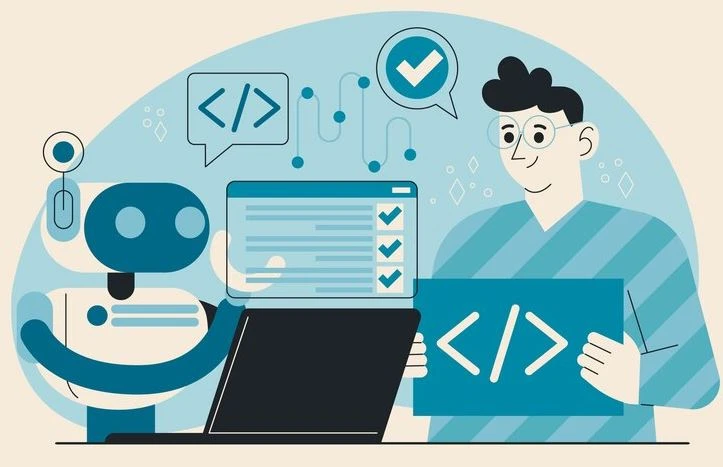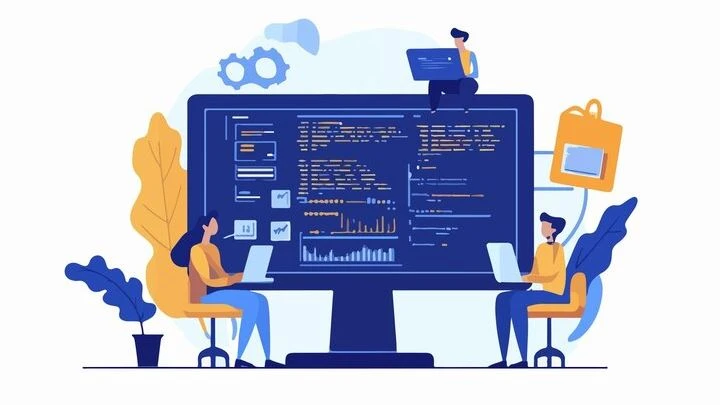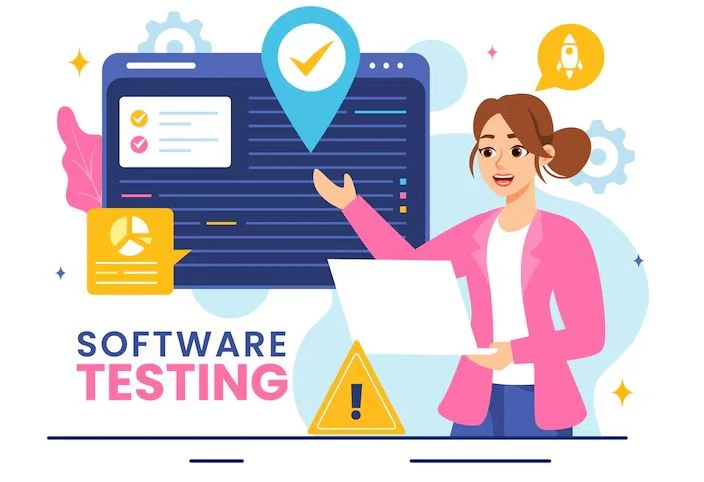Table of Content
Key AI Software Testing Strategies Every Developer Should Know About
Building an AI software is not easy, as it requires plenty of knowledge related to machine learning, data science and other co-related fields. Not just that, but a developer must also need to know different AI software testing strategies that are often used to evaluate the product efficiency. Working with them is important because software testing ensures to roll out a product free from all types of bugs and errors. As a beginner, you won’t be able to start with advanced testing mechanisms. Instead, you will first need to learn the basics, as how testing is done in the AI products in an organized manner.
A lot of times, beginners do not pay attention to the testing part, hence their applications remain faulty throughout the development lifecycle. In AI product development, this negligence is unacceptable because it can prove detrimental for the whole project. It is therefore recommended to first learn all the AI software testing strategies that are required for the evaluation. If you do not know much about them, this blog will prove to be a good read for you.
In this article, we will discuss some of the best AI software testing strategies that are used across the industry. But, before moving straight to that, let’s first take a look at the concept of software testing, as why it is termed important for every application.
Importance of Software Testing

Software testing is crucial for ensuring the quality and reliability of applications. It helps identify and fix bugs, glitches, and other issues before the software is released to users. Without thorough testing, applications may contain defects that lead to system crashes, data loss, or poor user experiences, which can damage a company’s reputation and lead to financial losses. By identifying and resolving issues early in the development process, testing helps maintain high standards of quality and ensures that the software operates smoothly across different environments and use cases.
Moreover, software testing plays a key role in ensuring security and compliance in applications. Many software systems handle sensitive data, including financial information, personal identification, and medical records. Rigorous testing helps uncover vulnerabilities that could be exploited by hackers, protecting both users and organizations from data breaches or malicious attacks. Additionally, many industries require compliance with specific regulations, such as GDPR or HIPAA.
Finally, QA testing ensures performance and scalability under different conditions. Applications need to function properly not just in ideal scenarios but also under heavy user loads, network interruptions, and varying system configurations. Performance testing helps verify that the software can handle increased demand without crashing or slowing down. This ensures the application can scale efficiently as the user base grows, providing a seamless and reliable experience for all users.
What is AI Testing?

AI testing leverages machine learning algorithms and advanced artificial intelligence technologies to enhance and optimize various aspects of the software testing lifecycle. Traditional software testing methods often involve repetitive, manual processes that can be time-consuming and prone to human error. By integrating AI, these manual processes can be automated and improved, allowing for quicker, more accurate detection of bugs. AI can analyze large datasets, and even predict potential issues, making it a powerful tool in enhancing the efficiency and accuracy of testing activities.
Moreover, AI testing introduces a new level of intelligence and adaptability into the testing process. Machine learning models can be trained to understand the application’s behavior over time, enabling them to predict future failures or detect anomalies quickly. These algorithms can evolve as the software itself evolves, adapting to new code changes or environmental variables without the need for constant reprogramming. This dynamic approach allows for more comprehensive coverage of test cases, especially in complex systems where traditional testing might fall short.
In addition to improving efficiency and accuracy, AI-driven testing also contributes to better decision-making. By automating tasks like regression testing, performance monitoring, and error detection, AI frees up human testers to focus on higher-level tasks. AI tools can prioritize the most critical issues, and identify the areas of the application that require the most attention. This level of insight helps development teams make more informed decisions, and ensure that the software meets precise functional requirements.
Key AI Software Testing Strategies to Follow

Being a beginner, you might not know how to implement QA testing in AI products. It definitely requires specialized strategies that differ from the conventional testing methods. If you do not know much about them, take a look at the key testing practices defined below.
Start with an Objective
Before starting AI testing, it’s crucial to define your specific goals and understand what you hope to achieve through this approach. Identifying the primary objectives, whether it’s improving the quality of your testing processes or streamlining operations, will guide your efforts in the right direction. For instance, you may want to harness AI to increase efficiency, reduce manual effort, or scale testing to meet the growing complexity of your software.
One of the key areas where AI testing can deliver significant benefits is in improving test coverage. By leveraging AI, you can explore larger and more complex areas of your software that manual testing may not fully address, ensuring that your application is thoroughly validated. AI tools can automatically generate test cases based on patterns and data, helping to cover edge cases or rare scenarios that might otherwise be overlooked.
Additionally, AI can play a vital role in accelerating test execution and enhancing defect detection. With AI-driven automation, testing can be completed more quickly and efficiently. This not only speeds up the development cycle but also allows for faster identification of bugs or defects. AI systems can detect patterns and anomalies in the data that might signal underlying issues, leading to more accurate defect identification. Ultimately, having a clear vision will help your organization reap the full benefits of AI testing and optimize your software development lifecycle.
Fuel innovation by leveraging bespoke software solutions. Get in touch with our team of experts to build cutting-edge software products.
Get a QuoteUse Prompt Engineering
Prompt engineering plays a pivotal role in shaping the output of AI models by carefully crafting the input queries or instructions. By guiding the AI with precise prompts, users can influence the model to generate highly relevant and meaningful responses. This technique is especially important when working with sophisticated AI systems, as it helps narrow down the model’s vast range of potential outputs. A well-structured prompt can ensure that the AI’s responses are focused, reducing ambiguity and increasing the likelihood of obtaining valuable results.
For testers, prompt engineering is essential for achieving accurate, reliable, and actionable outcomes during the testing phase. Testers rely on well-constructed prompts to evaluate an AI model’s performance, identify areas of improvement, and assess the relevance of its responses. Without thoughtful prompt formulation, testers risk receiving irrelevant or overly generic outputs that fail to meet the intended objectives. Thus, mastering prompt engineering allows testers to better harness the potential of AI systems, ensuring that the model’s outputs precisely correct.
The process of prompt engineering involves crafting clear, and concise queries that accurately summarize the testing requirements and desired outcomes. Testers must carefully consider the language, and specificity of their prompts to provide the AI with enough information to generate meaningful responses. This includes anticipating how the AI will interpret the prompt and adjusting the phrasing to avoid misunderstandings. In doing so, testers can optimize the performance of AI models, making prompt engineering a critical skill in AI testing and evaluation.
Implement Diversified Testing
Although AI automation tools can greatly enhance testing efforts, relying exclusively on AI-driven testing solutions is not advisable. AI software testing tools are highly effective at streamlining repetitive tasks, and identifying patterns in test data. However, they have limitations in understanding the complex nature of certain defects. Human domain knowledge are still necessary to catch subtle issues that AI may overlook. Therefore, while AI tools can accelerate testing processes, they should be used as part of a broader strategy rather than as the sole solution.
A hybrid approach, which combines AI-powered automation with manual testing, offers a more comprehensive and balanced testing framework. By leveraging both AI and human expertise, this approach can significantly expand test coverage, ensuring that both straightforward and intricate scenarios are adequately tested. Automated tools excel at quickly running large-scale regression tests and handling repetitive tasks, but human testers bring critical thinking, adaptability, and a deeper understanding of context.
Moreover, a hybrid testing strategy helps uncover hidden defects that AI-driven systems might not identify due to their reliance on predefined algorithms and patterns. Human testers can recognize unpredictable edge cases, usability issues, and other complexities that require an understanding of user behavior and real-world application. By integrating AI’s speed and scalability with the depth of human insight, the hybrid approach ensures more robust and reliable software testing, leading to higher-quality results and fewer issues in production.
Train the AI Models
To effectively train machine learning (ML) models, having access to high-quality historical data is essential. The success of an ML model largely depends on the quality, relevance, and accuracy of the data it learns from. Historical data, particularly in the context of software testing, provides the model with a wealth of information about past bugs, system behaviors, and test results. This data serves as the foundation upon which the model builds its knowledge, allowing it to recognize patterns, anomalies, and potential issues based on what has occurred before.
Once trained on this historical data, the ML model develops the ability to identify and detect bugs with greater precision and speed. By analyzing past testing records and known defects, the model learns to anticipate common and recurring issues, as well as identify rare or unexpected bugs that might otherwise go unnoticed. This capability significantly enhances the efficiency of the software testing process, as the ML model can quickly flag potential problems and suggest areas that require further investigation.
Incorporating high-quality historical data into the training of ML models streamlines the entire testing workflow. As the model becomes better at recognizing patterns, it can assist testers by automating certain aspects of the process. This allows human testers to focus on more critical tasks that require deeper analysis. Ultimately, by training ML models with comprehensive and relevant data, organizations can significantly enhance the efficiency and reliability of their AI software testing efforts, leading to faster development cycles and higher-quality software.
Benefits of AI Software Testing

There are many benefits of using AI in software testing. It not only reduces the human efforts, but also provides perfection in every evaluation using the power of advanced algorithms. If you do not know how much beneficial AI software testing is, take a look at the points defined below.
Fast Execution
AI-powered testing dramatically accelerates the overall testing process by automating repetitive tasks and optimizing the execution of test cases. Traditional manual testing can be time-consuming and prone to human error, especially when the same tests need to be run multiple times. By introducing AI into the testing cycle, teams can automate these repetitive tasks, allowing the process to move much more quickly and efficiently. AI algorithms can rapidly generate, execute, and analyze test cases, ensuring that testing is done at a faster pace without compromising accuracy.
One of the key areas where AI testing proves particularly beneficial is in automating regression testing. Regression testing requires running the same test cases repeatedly after any changes are made to the codebase. This can be a highly labor-intensive process if done manually. With AI, however, these repetitive tests can be automated and run across various iterations of the software. AI tools can intelligently identify which test cases are relevant based on the changes in the code, optimizing both the time and resources needed to perform comprehensive regression tests.
Easy Maintenance
AI testing stands out from traditional software test automation by offering advanced and adaptive test capabilities. Traditional automation requires manual intervention to update test scripts which can be time-consuming and prone to errors. In contrast, AI-powered testing tools use intelligent algorithms to automatically detect and respond to such changes. These tools can analyze test results in real-time, identify patterns in the data, and make adjustments to test scripts without requiring constant manual updates.
Moreover, AI-driven tools excel at identifying areas where tests need to be updated by examining not only changes in code but also patterns of failure or emerging issues across different test cycles. By leveraging machine learning, these tools can learn from past testing cycles, predict potential problem areas, and proactively adjust tests to better accommodate new conditions. This adaptability allows AI testing solutions to keep pace with fast-changing development environments, improving the overall stability of the testing process.
Perfect Accuracy
AI-powered testing frameworks significantly enhance the accuracy and reliability of test results by effectively minimizing human errors and biases that can compromise the integrity of the testing process. Human testers, while skilled and knowledgeable, are inherently subject to fatigue, oversight, and subjective interpretation, all of which can lead to inconsistent or erroneous outcomes. In contrast, AI testing tools employ sophisticated algorithms that consistently analyze data without the influence of human emotions or fatigue.
In addition to minimizing human error, AI testing tools leverage advanced analytics and predictive modeling to detect anomalies within the software. By analyzing vast amounts of data, these tools can identify patterns that might indicate potential issues. For instance, if a particular feature consistently fails under certain conditions, the AI can flag this anomaly for further investigation. This capability allows development teams to proactively address problems before they escalate, ultimately leading to more reliable software solutions.
Affordable Solution
Although implementing AI testing tools involves a substantial initial investment, the long-term advantages frequently surpass these upfront costs, leading to considerable savings for organizations. The integration of AI into the software testing process transforms how companies approach quality assurance. Over time, the return on investment becomes evident as organizations experience faster testing cycles, reduced labor costs, and decreased expenditure on fixing post-release defects.
Furthermore, AI-powered automation significantly reduces the number of testing hours required, allowing teams to focus on more strategic and complex aspects of software development. By streamlining routine testing tasks, businesses can enhance their overall productivity and ensure a higher level of quality in their products. The automation capabilities of AI testing tools minimize the risk of defects slipping into production, as they provide thorough and consistent coverage across various test scenarios.
Frequently Asked Questions
| What is AI software testing? AI testing refers to the use of artificial intelligence techniques to automate the software testing process. It involves leveraging algorithms to analyze test results, detect anomalies, and adapt test scripts dynamically to accommodate changes in the software. |
| Why AI testing should be used instead of conventional methods? AI software testing should be used instead of conventional methods because it automates repetitive tasks, reducing human error and speeding up testing cycles. |
| What are the benefits of implementing AI software testing? Implementing AI software testing offers significant benefits, including increased efficiency and enhanced accuracy by minimizing human errors. Additionally, AI testing provides deeper insights by detecting hidden defects, leading to higher-quality solutions. |
Final Words
That concludes our entire blog in which we have discussed different AI software testing strategies in detail. Being a developer, you need to know about various testing techniques that can simplify your product evaluation process. With the evolution of AI, these techniques have evolved greatly, offering developers a new way to conduct testing quickly. This blog has discussed different AI software testing strategies in detail, so that you can properly understand how AI provides stunning automation in different testing process.
Meanwhile, if you are looking for an agency that provides quality QA testing solutions, get in touch with us today. We understand procedures required in different types of software testing, hence you can count on our expertise that always provides quality results.
Empower your digital initiatives with BariTechSol, a premier custom software development company. Our skilled team tailors cutting-edge solutions to your unique needs. Elevate your tech experience and stay ahead in the digital realm. Partner with BaritechSol and code the success of your next big idea.


